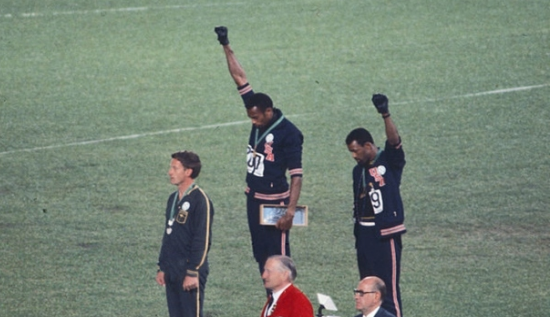Human Rights for African Americans

“An Appeal to the World: A Statement of Denial of Human Rights to Minorities in the Case of Citizens of Negro Descent in the United States of America,” a letter by W.E.B. DuBois to the newly established United Nations, was submitted in 1947. His attempts to get the United Nations to take action against the country’s violations of human rights would fail for a number of reasons, including the Cold War-era conflict with the Soviet Union. Any criticism of the United States voiced on a global scale would be quickly stolen by the Soviets and endanger her larger political objective [4, 5].
The Civil Rights Congress appeal to the UN in 1951, with the slogan “We Charge Genocide,” listed 152 incidents of Black people being slain by lynch mobs and police while unarmed. Following then, William Patterson’s passport was revoked because the American investigation stalled. Malcolm X would present a similar argument not even ten years after quitting the Nation of Islam. Even though X would persuade one African nation to hear him out, his attempts on a large scale would be derailed when he was killed [6-8].
The UN will set up a committee of experts in July 2021 to investigate systematic racism in how people of African descent are treated by law enforcement. Despite the panel’s mandate to examine law enforcement throughout the world, references to George Floyd’s death have raised hopes that the American context will receive significant weight in the investigation [9-11].
The Biden administration will extend a standing invitation to all U.N. envoys for African Americans, reversing Roosevelt’s decision to undercut rights protection initiatives for African Americans. Before attempting to be a “credible force for human rights” worldwide, Secretary of State Antony Blinken said that the United States must “address the reality of bigotry and intolerance at home.” Recent occurrences imply that some American decision-makers are starting to see the need of defending Africans’ human rights [12-14].
African American leaders have used the phrase “human rights” to stress the gravity of their predicament on a global scale. Some of the well-known individuals who have made a significant contribution to the overlooked tale of Black people spearheading antiracist efforts are W.E.B. DuBois, William Patterson, Malcolm X, and Tommie Smith.
references
[1] G. P. V. U. S. Collaborators, “Fatal police violence by race and state in the USA, 1980–2019: a network meta-regression,” The Lancet, vol. 398, no. 10307, pp. 1239-1255, 2021.
[2] A. G. Ferguson, “Policing predictive policing,” Wash. UL Rev., vol. 94, p. 1109, 2016.
[3] T. Campbell, “Black Lives Matter’s effect on police lethal use-of-force,” Available at SSRN 3767097, 2021.
[4] H. Lewis, “Globalization’s People: Black Identities in US-Caribbean Encounters,” Law & Ineq., vol. 32, p. 349, 2014.
[5] T. Masiki, “” Any place is better than here”: Afro-Zionism in the Science Fiction of Ray Bradbury and Derrick Bell,” CLA Journal, vol. 63, no. 1, pp. 25-49, 2020.
[6] G. Yancy and J. Jones, Pursuing Trayvon Martin: historical contexts and contemporary manifestations of racial dynamics. Rowman & Littlefield, 2013.
[7] B. Rodriguez, Beyond nation: The formation of a tricontinental discourse. Yale University, 2006.
[8] K. P. Feldman, Racing the question: Israel/Palestine and US imperial culture. University of Washington, 2008.
[9] M. V. Kiang and A. C. Tsai, “Failure of leadership in US academic medicine after George Floyd’s killing by police and amidst subsequent unrest,” Annals of epidemiology, vol. 65, pp. 116-119, 2022.
[10] M. R. Smith, “Reimagining the Use of Force by Police in a Post-Floyd Nation,” Police Quarterly, vol. 25, no. 2, pp. 228-251, 2022.
[11] J. W. Ayers et al., “Quantifying public interest in police reforms by mining internet search data following George Floyd’s death,” Journal of medical Internet research, vol. 22, no. 10, p. e22574, 2020.
[12] J. A. Bader, Obama and China’s rise: An insider’s account of America’s Asia strategy. Brookings Institution Press, 2012.
[13] B. C. Jones, Flawed Triumphs: Andy Young at the United Nations. University Press of America, 1996.
[14] I. H. Daalder and J. M. Lindsay, America unbound: The Bush revolution in foreign policy. Brookings Institution Press, 2003.
